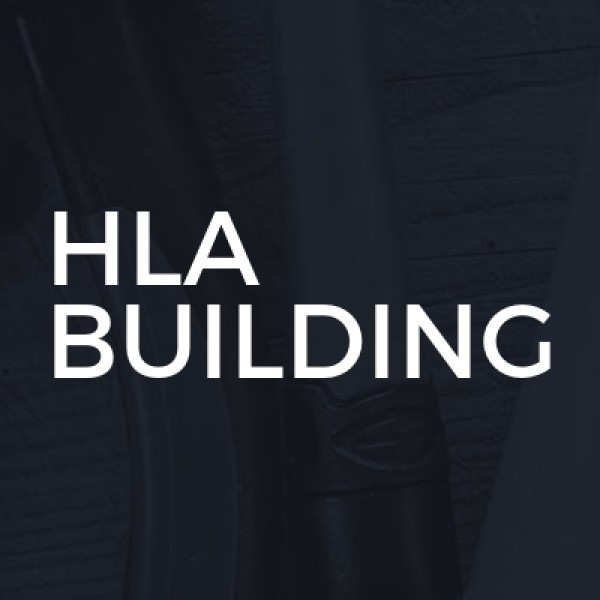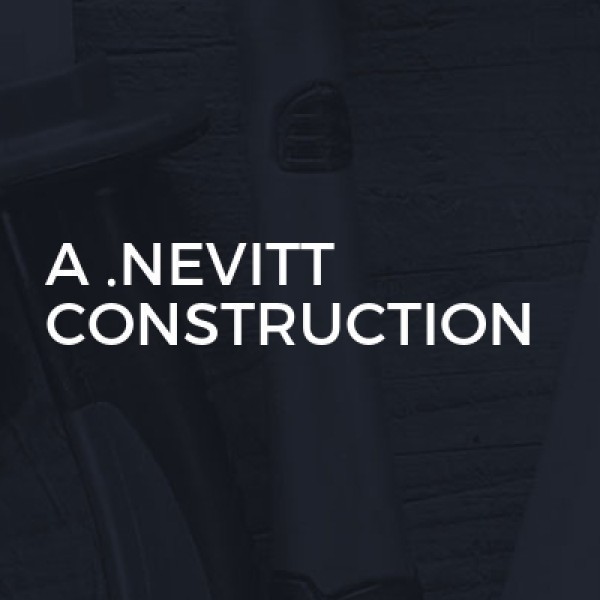Garage Conversions in Redruth
Welcome to HLA Building, your trusted partner for all your construction needs in St Mawes and a... read more »
P Skewes Building Limited is a trusted name in the building industry, proudly serving the vibrant community of Seworgan... read more »
Welcome to Cornwall Building & Landscape Services Ltd, your trusted partner for all your landscaping and building needs in the heart... read more »
Welcome to WM Jope Building and Carpentry, your trusted partner for all building and renovation needs in Carminow Cross and throughout Co... read more »
Stockman Marine & Domestic Joinery, nestled in the heart of St Gluvias, is your go-to solution for all things constructi... read more »
Welcome to Wills Home And Garden Improvements, your trusted partner for all your building and renovation needs in Illogan and throughout... read more »
Welcome to Oliver Group Construction Limited, your trusted partner for all your building needs in Perranporth and across Cornwall. With n... read more »
Welcome to Cornwall Timber Construction, your trusted partner for all your building and renovation needs in Trewoon and across the beauti... read more »
Welcome to A. Nevitt Construction, your trusted partner for all building and renovation needs in High Lanes, Cornwall. With an impressive... read more »
Welcome to GJ Smith Building Contractor, your trusted... read more »
Welcome to... read more »
Welcome to Hysmark Ltd, your go-to building company i... read more »
Welcome to Wynne Construction, your trusted builders... read more »
Troy Howard Roofing, a reputable bus... read more »
Welcome to JD Construction, your trusted partner for... read more »
Welcome to DJR Builders Cornwall, your trusted partne... read more »
Platinum Renovations South West is y... read more »
D.P. Wood Building and Masonry Contractorsread more »
Ahhh Carpentry And Building is a rep... read more »
HR Developments Cornwall Ltd is your... read more »
Search Garage Conversions in places nearby
Understanding Garage Conversions in Redruth
Garage conversions in Redruth have become increasingly popular as homeowners seek to maximise their living space without the need for a costly extension. By transforming an underutilised garage into a functional room, residents can enhance their property's value and utility. This article explores the ins and outs of garage conversions, offering insights into planning, design, and execution.
The Benefits of Garage Conversions
Converting a garage offers numerous advantages. Firstly, it provides additional living space, which can be used for a variety of purposes such as a home office, gym, or guest room. Secondly, it can significantly increase the value of your home, making it a wise investment. Lastly, garage conversions are often more cost-effective than building an extension, as the basic structure is already in place.
Maximising Property Value
One of the primary reasons homeowners in Redruth opt for garage conversions is the potential increase in property value. A well-executed conversion can add up to 20% to the value of your home. This is particularly beneficial in a competitive housing market, where additional space can set your property apart from others.
Cost-Effective Home Improvement
Compared to other home improvement projects, garage conversions are relatively affordable. Since the structure already exists, the costs associated with foundations, walls, and roofing are eliminated. This makes it an attractive option for those looking to enhance their living space without breaking the bank.
Planning Your Garage Conversion
Before embarking on a garage conversion, careful planning is essential. This involves considering the intended use of the space, obtaining necessary permissions, and setting a realistic budget.
Determining the Purpose
The first step in planning a garage conversion is deciding how the space will be used. Whether you need an extra bedroom, a playroom for the kids, or a quiet office space, having a clear purpose will guide the design and layout of the conversion.
Obtaining Permissions
In Redruth, as in other parts of the UK, certain garage conversions may require planning permission. It's crucial to check with the local council to determine if your project needs approval. Generally, if the conversion does not alter the structure's exterior, planning permission may not be necessary. However, building regulations must always be adhered to, ensuring the space is safe and habitable.
Setting a Budget
Establishing a budget is a vital part of the planning process. Consider costs such as insulation, flooring, windows, and any structural changes. It's wise to include a contingency fund for unexpected expenses. Consulting with a professional can provide a more accurate estimate and help avoid overspending.
Designing Your New Space
Once the planning phase is complete, it's time to focus on the design. This involves selecting materials, choosing a layout, and incorporating personal touches to make the space uniquely yours.
Choosing the Right Materials
Material selection is crucial in ensuring the longevity and functionality of your converted space. Opt for durable, high-quality materials that complement the rest of your home. Consider insulation materials to keep the space warm and energy-efficient, especially during the colder months in Redruth.
Creating a Functional Layout
The layout of your converted garage should reflect its intended use. For instance, a home office might require built-in shelving and a desk area, while a guest room would benefit from a comfortable bed and storage solutions. Think about the flow of the space and how best to utilise every square foot.
Adding Personal Touches
Personalising your new space is what makes it truly feel like part of your home. Choose a colour scheme that resonates with you, add artwork or decor that reflects your personality, and incorporate lighting that enhances the room's ambiance. These touches will make the space inviting and enjoyable to use.
Executing the Conversion
With a solid plan and design in place, the next step is executing the conversion. This involves hiring professionals, managing the project, and ensuring everything is completed to a high standard.
Hiring Professionals
While some homeowners may choose to tackle a garage conversion as a DIY project, hiring professionals can ensure the job is done correctly and efficiently. Look for contractors with experience in garage conversions and check references to ensure quality workmanship.
Managing the Project
Effective project management is key to a successful conversion. Regularly communicate with your contractors, monitor progress, and address any issues promptly. Keeping the project on schedule and within budget requires attention to detail and proactive problem-solving.
Ensuring Quality and Compliance
Throughout the conversion process, it's essential to ensure all work complies with building regulations and quality standards. This includes proper insulation, electrical wiring, and plumbing if necessary. A final inspection by a building inspector will confirm that the space is safe and ready for use.
Common Challenges and Solutions
Like any home improvement project, garage conversions can present challenges. Being prepared and knowing how to address these issues can make the process smoother.
Dealing with Limited Space
Garages are often smaller than other rooms in the house, which can pose a challenge when designing the layout. To maximise space, consider built-in furniture, multi-functional pieces, and clever storage solutions. Mirrors and light colours can also create the illusion of a larger area.
Addressing Structural Issues
Older garages may have structural issues that need addressing before conversion. This could include dampness, cracks, or an uneven floor. Conduct a thorough inspection and address any problems before proceeding with the conversion to ensure a safe and stable environment.
Ensuring Adequate Lighting
Garages often lack natural light, making it essential to incorporate adequate lighting solutions. Consider installing windows or skylights to bring in natural light. Additionally, use a combination of overhead, task, and accent lighting to create a bright and welcoming space.
Legal Considerations and Compliance
Understanding the legal aspects of garage conversions is crucial to avoid potential pitfalls. This includes adhering to building regulations and obtaining necessary approvals.
Understanding Building Regulations
Building regulations ensure that converted spaces are safe and habitable. They cover aspects such as structural integrity, fire safety, insulation, and ventilation. Familiarise yourself with these regulations and ensure your conversion complies with all requirements.
Obtaining Necessary Approvals
As mentioned earlier, some garage conversions may require planning permission. It's essential to consult with the local council and obtain any necessary approvals before commencing work. Failure to do so can result in fines or the need to reverse the conversion.
Ensuring Long-Term Compliance
Once the conversion is complete, it's important to maintain compliance with building regulations. This includes regular maintenance and addressing any issues that arise over time. Keeping the space in good condition will ensure it remains a valuable asset to your home.
Frequently Asked Questions
- Do I need planning permission for a garage conversion in Redruth? In most cases, planning permission is not required if the conversion does not alter the building's exterior. However, it's always best to check with the local council.
- How much does a garage conversion cost? Costs can vary depending on the size and complexity of the project. On average, a garage conversion in Redruth might cost between £7,000 and £15,000.
- How long does a garage conversion take? A typical garage conversion can take between 4 to 6 weeks, depending on the scope of the work and any unforeseen challenges.
- Can I convert a detached garage? Yes, detached garages can also be converted, though they may require additional considerations such as heating and plumbing.
- Will a garage conversion add value to my home? Yes, a well-executed garage conversion can increase your home's value by up to 20%.
- What are the most popular uses for converted garages? Common uses include home offices, guest rooms, gyms, and playrooms.
Final Thoughts on Garage Conversions in Redruth
Garage conversions in Redruth offer a practical and cost-effective solution for homeowners looking to expand their living space. By carefully planning and executing the conversion, you can create a functional and valuable addition to your home. Whether you're looking to increase your property's value or simply need more room, a garage conversion could be the perfect solution.














